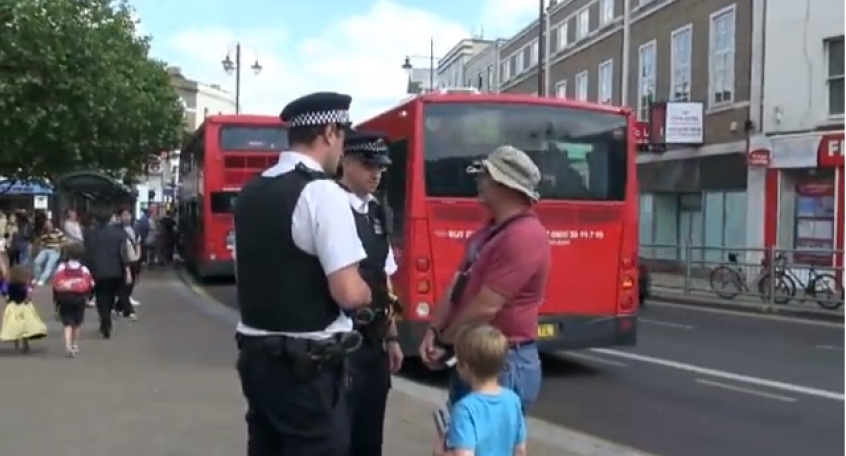
What if American street preacher Tony Miano had been unleashed as a Christian lion on an English court after he was arrested in Wimbledon for saying that homosexuality is a sin?
A highly commended former police officer in the Los Angeles County Sheriff's Department who served as a gang investigator and field training officer, Mr Miano would surely have been well capable of using a public law court to expose the politically correct assault on Christian freedom of speech in Britain.
For that reason, it was arguably a missed opportunity that a judicious police inspector made a midnight hour decision to release Mr Miano after he spent several hours in Wimbledon police station. In the presence of his Christian solicitor, Mr Miano was told by a detective that he would very likely be required to remain in Britain for four to five months in order to face trial for homophobic hate speech.
Mr Miano's account of what he described as his 'surreal' experience on July 1 can be found here
Campaigners Christian Concern are planning to inform every Member of Parliament about Mr Miano's arrest after a woman passer-by swore at him when she heard him criticising homosexuality and then reported him to the police who arrested him under Section 5 of the Public Order Act. That campaign will God willing have an impact in exposing the threat to religious freedom from the same-sex marriage bill now going through Parliament. But a public trial would have been so much more potent for the cause of Christian freedom.
Whilst it is welcome that Mr Miano remains at liberty to continue his evangelistic campaign in south London and to preach the good news of the forgiveness of all sin through faith in the Lord Jesus Christ, he is manifestly a tough man and would have been a formidable advocate for biblical Christianity in court. He sang hymns in his cell and under interrogation replied in the affirmative when asked if he would publicly repeat his statement that homosexuality is a sin.
He told police that he was not homophobic because he was not afraid of homosexuals and wanted to bring them the truth of the gospel. In his sermon at the Centre Court Shopping Centre, Mr Miano had preached against sexual immorality in both its heterosexual and homosexual forms. However, he would be advised in future, as would all Christian preachers, to make clear that the sin is practising homosexuality, so as to distinguish the deed from the temptation.
A profile of the police inspector who released Mr Miano would be instructive and the national newspapers have a moral responsibility to investigate the incident. One suspects he is an experienced policeman who realised the extent to which the junior detective's professional judgement had been impaired by politically correct zeal.
But imagine the junior detective becomes the inspector and his ideology is now legally enforceable. Under that scenario, faithful and - very importantly - humble Christians with the spiritual, moral, psychological and physical robustness of Mr Miano would certainly have their chance to testify to the love of Christ before the English courts.













